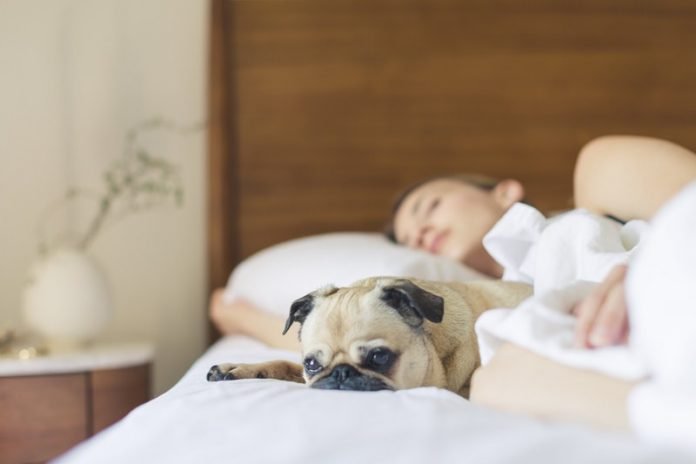
New Year’s Day is the sleepiest day of the year according to American Academy of Sleep Medicine (AASM) survey results of 2,003 U.S. adults.
More than half (57%) of survey respondents reported they are more tired than usual on New Year’s Day compared to other holidays and times of the year, followed by the first day back at work in January (45%) and the 5th of July (41%).
Wild parties and late nights out can leave any person feeling fatigued – are you one of them?
Americans recognize that sleep is important to their health, but many fail to prioritize it. The start of a new year is the perfect time to set healthy sleep goals.
Sleep improves your well-being, fitness, and productivity. It also helps you fight off infection, maintain a healthy weight and avoid chronic diseases.
Make 2020 a year of healthy sleep by dedicating yourself to one (or multiple!) sleep resolutions to improve the quality and quantity of your sleep.
Resolution 1: Get a sufficient amount of sleep each night
According to the AASM, adults should sleep 7 or more hours per night on a regular basis to promote optimal health.
Of course, not everyone requires the same amount of sleep, but in general this recommendation is a good place to start.
CDC data show that 35% of U.S. adults fail to sleep at least 7 hours per night. Getting less than 7 hours of sleep on a regular basis increases your risk of several health problems.
Sleep is integral to your overall health, so make it a priority to sleep at least 7 hours per night.
Identify a consistent bedtime that allows you to get the proper sleep duration and make it a goal to be in bed with the lights out by bedtime each night.
If this is challenging for you, try setting a bedtime alarm to remind you when it’s time to start getting ready for bed.
Resolution 2: Get better quality sleep
Set yourself up for good quality sleep by avoiding distracting activities before bed and creating a relaxing sleep environment.
Disrupted sleep isn’t as restorative as quality sleep, so get rid of electronic distractions in the bedroom by silencing (or turning off) your cell phone and TV.
Ideally, you should power down your devices at least 30 minutes before bedtime.
Avoid common sleep disrupters in the evening such as alcohol, caffeine and tobacco. Eating a large meal or exercising right before bed might also make it more difficult to sleep.
Maintain a comfortable setting for sleep by keeping your bedroom dark and at a temperature conducive to sleep – most people sleep best at a cool temperature.
Resolution 3: Seek help for sleep problems
If you have an ongoing sleep problem or struggle to stay awake during the day, you should speak with your medical provider or reach out to an AASM-accredited sleep center.
Led by a board-certified sleep medicine physician, the sleep team at an accredited sleep center is expertly trained to help with the management of any sleep disorder.
Sleep disorders upset your slumber and also impact your daily life.
Common sleep disorders like insomnia and sleep apnea are treatable, and an accredited sleep center can help you determine the proper treatment plan so you can get back to living your healthiest life.
Achieving your goal
Sticking to your sleep resolution starts with practicing good sleep hygiene, which are healthy habits that promote better sleep.
Healthy sleep is part of the daily rhythm of life, so it works best when you keep a regular routine. Try to wake up at the same time every morning and go to bed when you feel sleepy.
Keep your bedroom dark, cool, and free from distracting technology. If lifestyle changes don’t improve your sleep, talk to your medical provider about your concerns.
Tired of waking up on the wrong side of the bed? Start 2020 off on the right foot by setting a sleep resolution to help achieve better sleep on a consistent basis.



